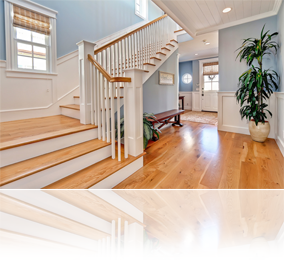Does your home have a lot of personality?
There’s nothing wrong with that.
In fact, you may have pictures on the fireplace mantle showcasing happy family memories over the years… or trophies and other awards in the kids’ bedrooms that represent achievements that make you proud… or a fridge door covered with notes, a calendar and other items that make it a de facto family bulletin board!
These are all things that help make a house truly a place to call “home”.
But when it comes time to sell, all that personality can work against you. When buyers view your property, they want to visualize themselves living there, not you and your family.
Have you ever noticed how model homes are often furnished and decorated? All the rooms look beautiful and enticing. They draw you in. Why? Because, although all the rooms in the model home look great, they’re also impersonal. There’s no uncomfortable sense that you’re in a stranger’s home. You can easily see yourself living there.
That’s exactly what you should strive for when preparing your house for sale.
You can’t get rid of every personal item. That would be impractical. But there’s a lot you can do to depersonalize your home. For example, you can:
- Take down family pictures
- Clear items from the fridge door
- Store trophies in a box
- Remove personal knick knacks and similar items
- Keep only general titles on a bookshelf and store the rest.
The more easily buyers can see themselves living in your home, the more likely they are to become interested in it and make an offer.









